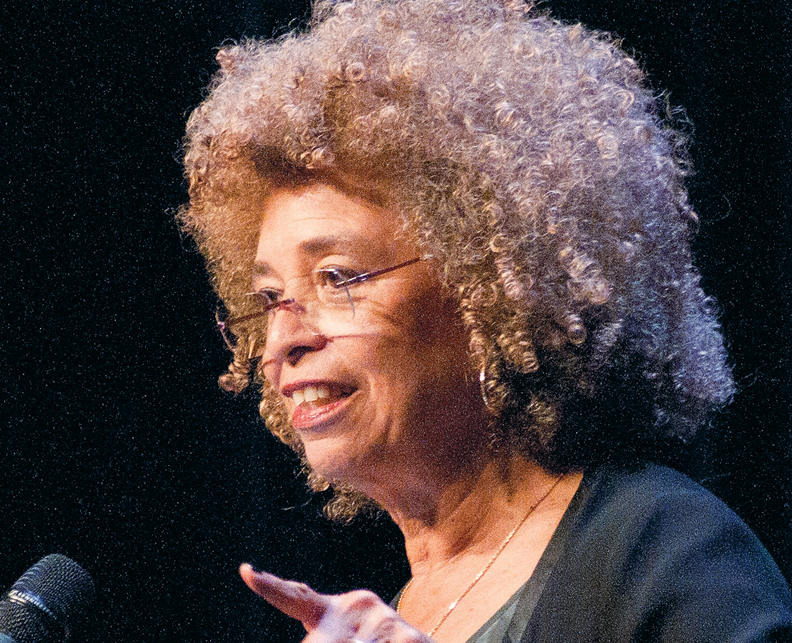“There is a movement on the horizon in this country today,” activist and scholar Angela Davis told 1,000 audience members packed into the University of North Carolina Wilmington’s Kenan Auditorium Tuesday, Jan. 20.
She spoke the day after the Martin Luther King Jr. holiday and several times quoted the civil rights icon in her speech. Being such a strong advocate for equality herself, she drew on her own experiences, echoing the powerful message that gained her national attention during the 1960s.
Throughout her early life Davis spoke out for oppressed groups despite attempts from authority figures to silence her. In 1969 she was removed from her teaching position at the University of California Los Angeles following her involvement in the Communist Party U.S.A. and protests to bring awareness to minority groups. A few years later she was placed on the Federal Bureau of Investigation’s 10 Most Wanted List and spent time in jail for her alleged involvement in a shoot-out. She was eventually acquitted of all charges after members of the public campaigned to free her.
As she addressed her audience in Wilmington, she spoke of the racial injustices in the 1960s and ’70s. But she also spoke about injustices today, listing the killings of Michael Brown, Eric Garner and Trayvon Martin as examples.
After pointing out specific cases, she said the fight for equality needed to move past the specifics and address the issues in a broader, more international way.
“We can’t just keep responding individual case to individual case,” she said.
Instead, she spoke about a global movement.
“The conscious of an awakened activist cannot be satisfied with a focus on local problems,” Davis said, “if only because he sees that local problems are all interconnected with world problems.”
She said she recently spent time in a small town outside Genoa, Italy, and the residents there were concerned about the protests in Ferguson, Missouri. She went on to point out several cases of injustice in the United States throughout the years that had prompted major demonstrations in other parts of the world.
“How do we create movements that help move from the individual to the institution, from the particular to the more general, from the surface to the depths of racism?” she asked.
Finally, Davis voiced her views on the prison system in the United States. She spoke about the inadequacy of punishing violent offenders with more violence rather than getting to the root of why people commit such crimes to begin with.
“I think Dr. King would ask, because he was so concerned with the proliferation of violence in the world, why do people commit such horrendous acts? Oftentimes there is the failure to interrogate the act, and therefore one cannot see the person,” Davis said.
She placed the future of the equal rights movement in the hands of each individual person in the room and his or her everyday actions. She said it was not the leaders but the strength of the masses that had the power to bring about change. Had it not been for the efforts of the public, she said, she would still be in prison.
“People say, you were so strong, or you did this and this,” she said. “And I say, actually, I was in jail.”
After her release, she, in turn, became an advocate for those who were oppressed. One particular member of the Wilmington audience said Davis went from being his childhood hero to his voice while he was imprisoned.
“I was one of the Wilmington 10,” Wayne Moore said. “She came and supported us while we were going through our struggle back in the ’70s. … As long as I can remember she’s been supportive of the struggle of the oppressed.”
email [email protected]




